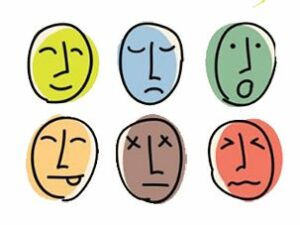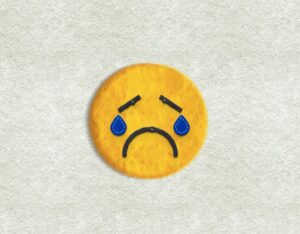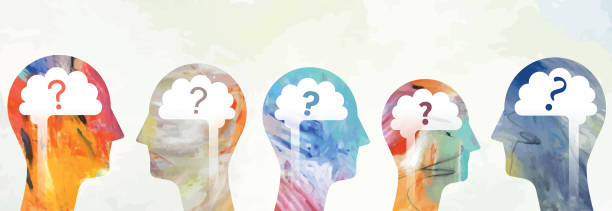Do you ever feel like you’re constantly battling against negative emotions? It can be exhausting, and it’s hard to know how to deal with them. In this blog post, we will discuss a comprehensive list of negative emotions that you may encounter every day. We will provide information on what each emotion is, what causes it, and how to deal with it. We hope this information will help you better understand and manage your emotional health!
Contents
Defining Negative Emotions
 Emotions are generally divided into two categories: positive and negative. Positive emotions include happiness, love, hope, and pride. Negative emotions, on the other hand, refer to feelings of sadness, anger, anxiety, fear, and shame.
Emotions are generally divided into two categories: positive and negative. Positive emotions include happiness, love, hope, and pride. Negative emotions, on the other hand, refer to feelings of sadness, anger, anxiety, fear, and shame.
It’s important to note that there is nothing inherently “wrong” with experiencing negative emotions. They are a normal part of the human experience, and they can actually be quite useful. Negative emotions can motivate us to take action and make changes in our lives. They can also help us bond with others who are experiencing similar feelings.
However, when negative emotions become overwhelming, they can have a negative impact on our physical and mental health. It’s important to learn how to deal with negative emotions in a healthy way.
There are many different factors that can contribute to negative emotions. Some of the most common causes include:
- Traumatic events or experiences
- Relationship problems
- Financial stressors
- Health concerns
- Chronic stress
- Disorders and illnesses
- Work or school issues
- Facing losses
All these can lead to different types of negative emotions. It is important to note that everyone experiences and deals with these emotions differently.
List Of Negative Emotions
There are many different types of negative emotions that you may encounter on a daily basis. Here is a list of some of the most common negative emotions, along with information on what they are and how to deal with them:
Anxiety
Anxiety is a feeling of unease, worry, or fear. It can be mild or severe, and it can be short-lived or long-lasting. Anxiety is a normal part of life, and it can be caused by a variety of different factors.
Anxiety can manifest in many different ways. Some people may experience physical symptoms such as sweating, racing heart, or dizziness. Others may experience emotional symptoms such as fear, worry, or insecurity. And still, others may experience behavioral symptoms such as avoidance, restlessness, or difficulty concentrating.
There is also something important to note that anxiety as an emotion doesn’t mean you have an anxiety disorder. An anxiety disorder is a diagnosable condition that requires treatment. But everyone experiences anxiety at some point in their lives.
Sadness
 Sadness is a feeling of sorrow or despair. It is often caused by loss, disappointment, or grief. Sadness is a normal part of life, and it is not something that should be ignored or suppressed.
Sadness is a feeling of sorrow or despair. It is often caused by loss, disappointment, or grief. Sadness is a normal part of life, and it is not something that should be ignored or suppressed.
Sadness can manifest in many different ways. Some people may experience physical symptoms such as fatigue, headaches, or body aches. Others may experience emotional symptoms such as crying, emptiness, or hopelessness. And still others may experience behavioral symptoms such as withdrawing from social activities, sleeping more than usual, or overeating.
Anger
Anger is a feeling of hostility, annoyance, or frustration. It can be caused by a variety of different factors, including stress, fear, or injustice. Anger is a normal emotion, but it can become problematic if it is not managed in a healthy way.
Anger can manifest in many different ways. Some people may experience physical symptoms such as clenched fists, increased heart rate, or tension headaches. Others may experience emotional symptoms such as rage, resentment, or frustration. And still others may experience behavioral symptoms such as yelling, throwing things, or becoming physically aggressive.
Fear
Fear is a feeling of apprehension or dread. It can be caused by a perceived threat or danger. Fear is a normal emotion, but it can become problematic if it is not managed in a healthy way.
Fear can manifest in many different ways. Some people may experience physical symptoms such as trembling, sweating, or a racing heart. Others may experience emotional symptoms such as terror, panic, or apprehension. And still others may experience behavioral symptoms such as avoidance, freezing up, or becoming agitated.
Guilt
 Guilt is a feeling of remorse or regret. It can be caused by real or perceived wrongdoing. Guilt is a normal emotion, but it can become problematic if it is not managed in a healthy way.
Guilt is a feeling of remorse or regret. It can be caused by real or perceived wrongdoing. Guilt is a normal emotion, but it can become problematic if it is not managed in a healthy way.
Guilt can manifest in many different ways. Some people may experience physical symptoms such as stomachaches, headaches, or sleeplessness. Others may experience emotional symptoms such as shame, self-blame, or regret. And still others may experience behavioral symptoms such as avoidance, withdrawal, or self-punishment.
Jealousy
Jealousy is a feeling of envy or resentment. It can be caused by a perceived threat to a relationship or to one’s own self-worth. Jealousy is a normal emotion, but it can become problematic if it is not managed in a healthy way.
Jealousy can manifest in many different ways. Some people may experience physical symptoms such as racing heart, sweating, or nausea. Others may experience emotional symptoms such as insecurity, inadequacy, or fear of abandonment. And others may experience behavioral symptoms such as possessiveness, controlling behavior, or stalking.
Shame
Shame is a feeling of humiliation or embarrassment. It can be caused by real or perceived shortcomings. Shame is a normal emotion, but it can become problematic if it is not managed in a healthy way.
Shame can manifest in many different ways. Some people may experience physical symptoms such as blushing, sweating, or trembling. Others may experience emotional symptoms such as worthlessness, humiliation, or despair. And others may experience behavioral symptoms such as avoidance, withdrawal, or self-loathing.
Inadequacy
 Inadequacy is a feeling of inadequacy or incompetence. It can be caused by real or perceived shortcomings. Inadequacy is a normal emotion, but it can become problematic if it is not managed in a healthy way.
Inadequacy is a feeling of inadequacy or incompetence. It can be caused by real or perceived shortcomings. Inadequacy is a normal emotion, but it can become problematic if it is not managed in a healthy way.
Inadequacy can manifest in many different ways. Some people may experience physical symptoms such as fatigue, headaches, or muscle tension. Others may experience emotional symptoms such as inadequacy, self-doubt, or insecurity. And others may experience behavioral symptoms such as avoidance, procrastination, or perfectionism.
Helplessness
Helplessness is a feeling of powerlessness or hopelessness. It can be caused by real or perceived obstacles. Helplessness is a normal emotion, but it can become problematic if it is not managed in a healthy way.
Helplessness can manifest in many different ways. Some people may experience it as a physical sensation, while others may feel it as a mental or emotional state. Helplessness is often accompanied by other negative emotions, such as anxiety, sadness, and frustration.
Loneliness
Loneliness is a feeling of isolation or emptiness. It can be caused by a lack of social interaction or by a feeling of being disconnected from others. Loneliness is a normal emotion, but it can become problematic if it is not managed in a healthy way.
Loneliness can manifest in many different ways. Some people may experience physical symptoms such as fatigue, headaches, or muscle tension. Others may experience emotional symptoms such as isolation, emptiness, or despair. And still others may experience behavioral symptoms such as avoidance of social situations, excessive sleeping, or over-eating.
Disgust
 Disgust is a feeling of revulsion or aversion. It can be caused by an unpleasant experience or by exposure to something that is considered unclean or dangerous. Disgust is a normal emotion, but it can become problematic if it is not managed in a healthy way.
Disgust is a feeling of revulsion or aversion. It can be caused by an unpleasant experience or by exposure to something that is considered unclean or dangerous. Disgust is a normal emotion, but it can become problematic if it is not managed in a healthy way.
Disgust can manifest in many different ways. Some people may feel disgusted by certain foods, while others may feel disgust at the thought of violence or death. Some people may even feel disgust at the sight of blood or gore. Disgust is often considered to be an unpleasant emotion, but it can also be a helpful one. It can help us avoid dangerous situations and protect us from harmful substances.
Emptiness
This is the sensation of hollowness or lack of fulfillment. We may feel like we’re missing something important in our lives, or that our lives are lacking purpose. Emptiness can be a very debilitating emotion, leading to depression and apathy. However, it is also possible to find meaning and purpose even in the midst of feeling empty.
This is more of a mental/emotional sensation than a physical one. But some people may experience it as a physical sensation, such as a tightness in the chest or an ache in the stomach. Emptiness is often accompanied by other negative emotions, such as sadness, anxiety, and frustration.
Boredom
 Lastly, boredom is the feeling of being uninterested or apathetic. We may feel like we’re just going through the motions, with no real purpose or goal in mind. Boredom can lead to a sense of pointlessness, but it can also be a catalyst for creativity and exploration.
Lastly, boredom is the feeling of being uninterested or apathetic. We may feel like we’re just going through the motions, with no real purpose or goal in mind. Boredom can lead to a sense of pointlessness, but it can also be a catalyst for creativity and exploration.
Typically, boredom is a transitory emotion. We may feel bored for a short period of time, but it is usually followed by another emotion. However, there are some people who experience chronic boredom. This can lead to depression, anxiety, and even aggression.
These are just some of the negative emotions that we may encounter on a daily basis. It’s important to remember that it’s normal to feel these things from time to time. However, if you find yourself feeling overwhelmed by negative emotions, or if they are impacting your ability to function in daily life, it may be time to seek professional help.
Are Negative Emotions Really Bad For You?
Emotions in human beings are a huge spectrum. It is normal to experience a wide range of emotions in different intensities every day. Emotions are our body’s way of reacting to different stimuli. They help us process and understand the world around us.
Some studies suggest that it is healthy to feel negative emotions from time to time. These studies suggest that experiencing negative emotions can lead to greater psychological well-being in the long run. These studies suggest that people who are able to effectively process and manage their negative emotions tend to be more resilient and adaptable.
So, while it is normal and healthy to feel negative emotions from time to time, it is important to find the balance between when it is helpful to feel these emotions and when it is harmful. Excessive negative emotions are impacting your ability to function in daily life. It can impact a person’s mental and physical health, as well as their relationships. If you find yourself in this situation, it may be time to seek professional help.
Ways To Manage Negative Emotions
 Professional help can come in many forms. You may benefit from therapy, medication, or other treatments. The most important thing is to reach out for help when you need it. There are also many things you can do on your own to manage negative emotions.
Professional help can come in many forms. You may benefit from therapy, medication, or other treatments. The most important thing is to reach out for help when you need it. There are also many things you can do on your own to manage negative emotions.
Therapy is the process of talking to a trained professional about your emotions. This can be a helpful way to understand and manage your emotions. Some of the most common therapy approaches include:
- Cognitive behavioral therapy
- Psychodynamic therapy
- Narrative therapy
- Interpersonal therapy
- Expressive art therapy
- Clinical hypnosis
Medication can be used to treat conditions that may be contributing to negative emotions. They work by changing the chemical balance in the brain. Some of the most common medications used to treat conditions that may cause negative emotions include:
- Selective serotonin reuptake inhibitors
- Serotonin and norepinephrine reuptake inhibitors
- Tricyclic antidepressants
- Monoamine oxidase inhibitors
- Stimulants
- Anti-anxiety medications
Some self-care activities that may help you manage negative emotions include:
- Exercise
- Eating a balanced diet
- Getting enough sleep
- Spending time in nature
- Doing something creative
- Spending time with friends and family
- Practicing meditation or mindfulness
- Venting it out
- Practicing affirmations
If you find yourself struggling to manage negative emotions, remember that you are not alone. There are many people who struggle with this. And there are many resources available to help you. Seek out professional help if you need it. You may also try some of the self-care activities listed above.
Conclusion
In conclusion of the above, it is evident that professional help may be necessary if negative emotions are excessively experienced and/or impacting daily life negatively. However, it is also essential to try some self-care activities to better manage emotions. Negative emotions are a part of life but it is crucial to find a balance for a healthy and happy lifestyle.
If you or someone you know is looking for psychological help, Therapy Mantra is here for you. We are the leading providers of online therapy and counseling. Our team of highly trained and experienced therapists can provide assistance at the most affordable rates. Contact us today to learn more about our services. You may also visit our website to book an online therapy session or download our free Android or iOS app for more information.


